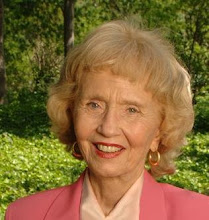
This article was printed in the UTD Coaching News Issue #033, November 2009.
In dealing with unrelenting change for myself and my career clients, I remember that I am a graduate of the School of Hard Knocks. “You can no more teach what you don’t know than come back from where you ain’t been” according to Mark Twain.
I may have learned more from this reality education than the academic Ph.D. Perhaps the combination set me up to be extremely committed and successful in plowing through the fear, chaos and uncertainty of the “dark night of the soul” and the pain which results from unexpected change!
When I read Toffler’s Future Shock in the early 70’s I was already making my third career change, which he was predicting for all in the future. Incidentally, he also predicted our career coaching. He said “life organizers. . .a cadre of professionals would be needed to provide practical assistance for structuring one’s life under the high social and technological turmoil and overchoice”.
Consequently, I dropped the Ph.D. in English, moved to Higher Education and wrote my dissertation establishing a community based career center for adults with career/job issues. I obtained a grant from the Department of Labor and the City of Garland to establish a career center in our library, trained eight career coaches and we provided information and services to 6,000 citizens. I then opened my own company, Career Design Associates. True, I was ahead of my time with helping adults changing careers.
However today I face a new learning crisis! To keep moving forward I personally must take my own advice and learn and use Web 2.0, which is a chaotic, but necessary challenge to learn and use. I am sharing with you my understanding of the chaos of change.
How to live and work successfully in our Age of Constant Change?
• Accelerating change can create crisis/stress/loss or growth/learning.
• Change can be painful (Change = Pain > Fear, C = P > F). We change only when
our pain is greater than the fear.
• A crisis can be opportunity blowing on a dangerous wind.
• Change is the only guarantee in life. Major failure today is failure to
change.
• An unpredictable event or sudden insight can trigger change.
• To change - step out of your "comfort zone," and live with positive
uncertainty.
• Develop a new paradigm; see old situations in new ways.
• Change occurs internally or externally. Outward change happens to us; inner
change is self-directed.
• Change is not linear: not in a straight line, or on a specific time line.
• We have less to give to others when we are changing. We can help others when
we get our act together.
• We impede change by denying that it is happening.
• Planning for change provides a measure of security, but it is difficult to
plan for the emotions that accompany it.
• The change process has predictable stages; it can trigger a “dark night of
the soul”, the emotional reaction of the loss/grief process.
• Overcoming fear and resistance to change is the first step.
• We live in change, uncertainty, ambiguity and contradictions, but have been
taught to value and seek stability and security.
• Today we are learning that the old rules don't work but we don't know the
new ones.
• We need countless unique and fresh personal and professional skills for a
New Age, however we may see only dimly what these are.
• Learning to embrace change, to thrive creatively during chaos will build our
self-esteem.
• If privately we see ourselves as a failure, we may talk of success but
unconsciously seek defeat!
Change is a challenge! Much underlying and industrial management theory of the last 100 years is obsolete! Toffler in speaking at the 2004 International Conference on Complex Systems said:
“At every level, economics, social organizations, culture, politics, we’re in the process of inventing a new civilization.” According to Toffler, “Everything is transient: families, corporations, governments, universities, organizations, religions, communities and nations are all temporary … most human institutions haven’t caught on – all in denial – operating as they did almost three centuries ago in the Industrial Revolution!”

